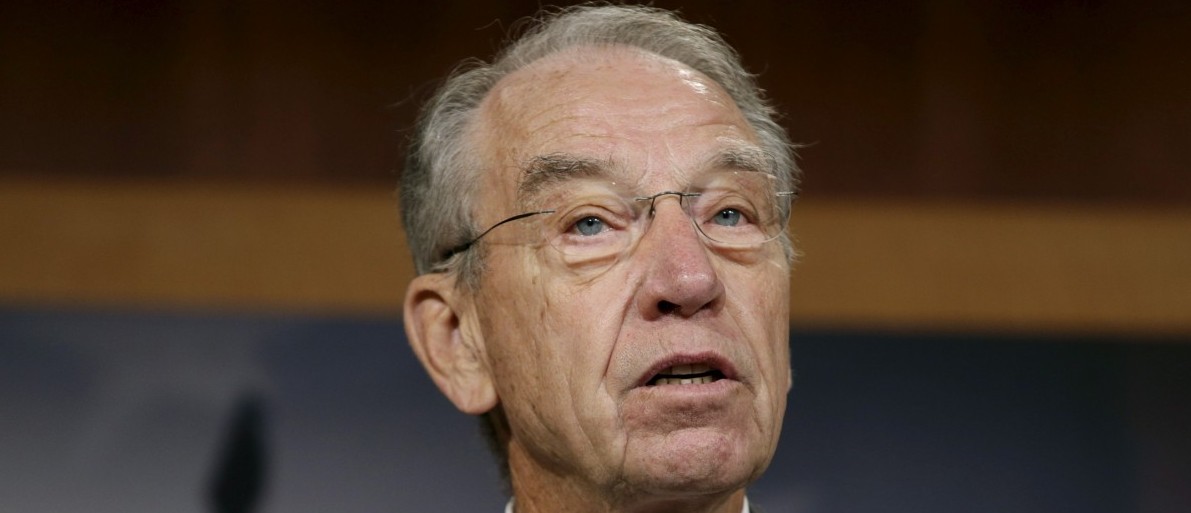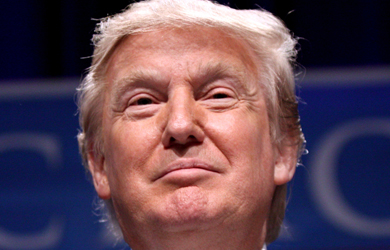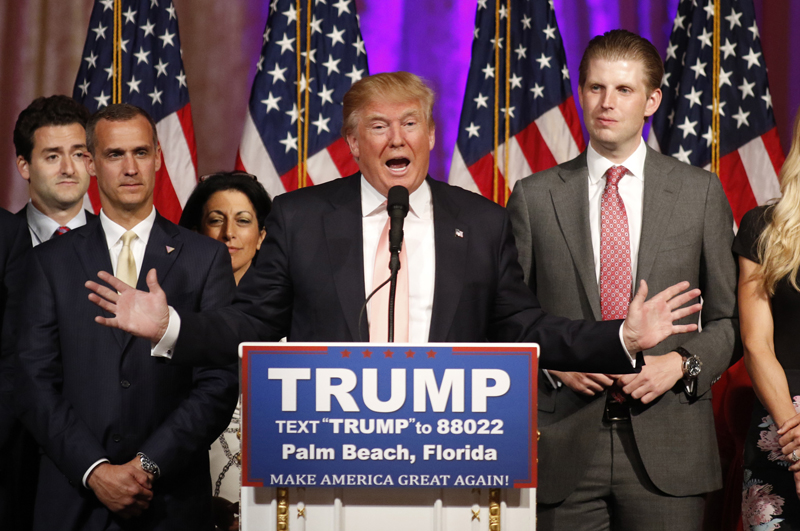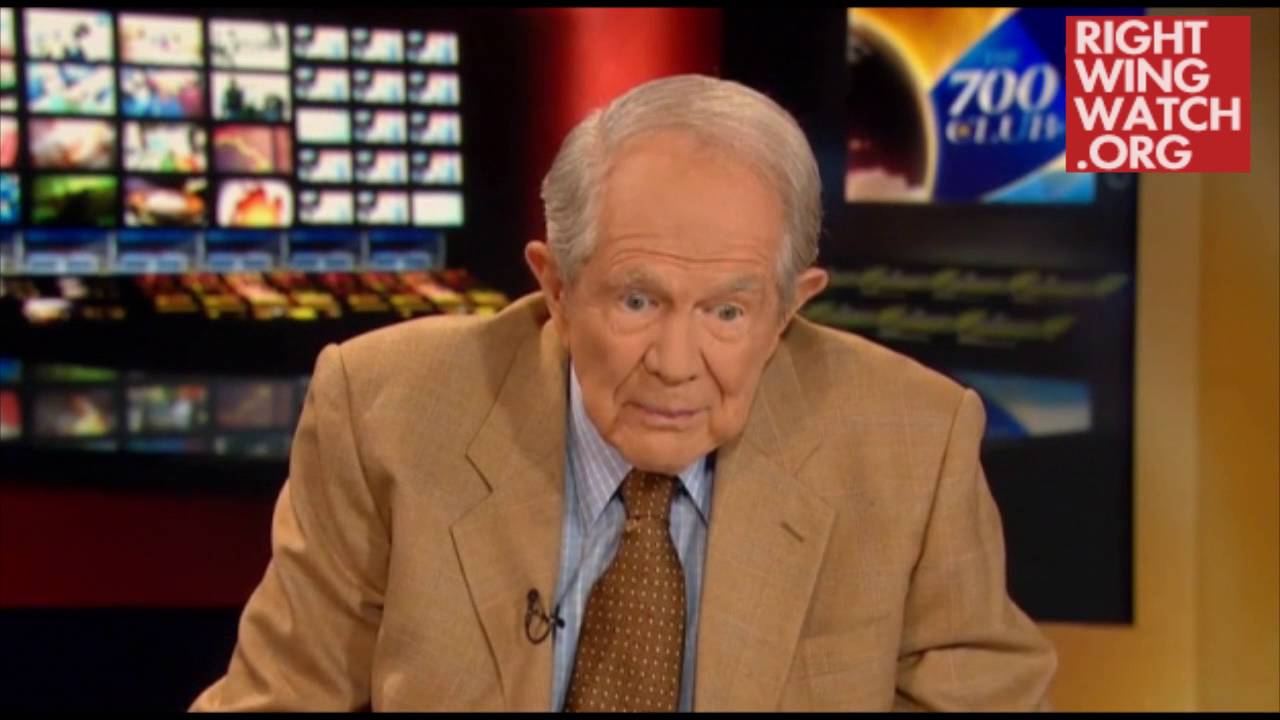Courting Extremism is a weekly feature on conservative responses to the Supreme Court vacancy.
Donald Trump, currently the frontrunner in the Republican presidential primary, believes that Barack Obama is an illegitimate president who isn’t a natural born citizen. So it’s only natural that Senate Republicans, having apparently decided that Obama’s second term in office only lasted for three years, seem intent on letting a future President Trump pick the next Supreme Court justice.
Not only would delaying a Supreme Court confirmation until the next president takes office leave the court short one justice for about a year, it could let Trump set the direction of the court for decades to come.
Conservative activists have pressured Republican leaders into taking an extreme stance that is opposed by a majority of voters, a stance so ridiculous that it even requires some Republicans to ignore their past statements on the judiciary.
Here are the five worst pro-obstruction arguments, blatant changes of heart and accidental admissions of truth that conservatives have made about the Supreme Court this week:
5) ‘Let’s Do Our Jobs’
Iowa Sen. Chuck Grassley, the chairman of the Judiciary Committee, has been feeling the heat over his support for the GOP’s Supreme Court blockade. In fact, his staff even went so far as to keep details of his public meetings with constituents a secret in order to avoid protests over the matter.
Perhaps Grassley would rather not talk to his constituents about why he thinks the Senate shouldn’t even hold a hearing on Judge Merrick Garland’s nomination because back in 2005 he was making exactly the opposite argument, telling his colleagues in a Senate floor speech about judicial nominees: “Let’s do our jobs.”
4) The Judicial C̶o̶n̶f̶i̶r̶m̶a̶t̶i̶o̶n̶ Crisis Network
It’s hard not to roll your eyes when the Judicial Crisis Network demands that Senate Republicans ratchet up their unprecedented obstruction of Garland and other judicial nominees when one remembers that prior to President Obama’s swearing-in, the group was called the Judicial Confirmation Network. Indeed, JCN was created for the sole purpose of encouraging the Senate to confirm President Bush’s nominees, especially his most extreme and controversial ones.
Now JCN is targeting Garland, a man JCN’s own leader implied in 2010 would make a suitable replacement for Justice John Paul Stevens.
“But of those the president could nominate, we could do a lot worse than Merrick Garland,” JCN chief counsel and policy director Carrie Severino said at the time. “He’s the best scenario we could hope for to bring the tension and the politics in the city down a notch for the summer.”
Not only is Severino trying to reverse herself on Garland, but she is even trying to alter the history of her own group.
In a March interview, Pennsylvania radio host Bobby Gunther Walsh spoke with Severino about the JCN and hailed her organization for its work confirming judicial nominees during the Bush administration.
When Walsh incorrectly claimed that the group was called the Judicial Crisis Network at the time — suggesting that it was formed to fight Senate Democrats who were supposedly bent on creating a “crisis” in the courts — Severino chose to let Walsh’s false claim stand and went on to attack Democrats for trying to “repeat false facts over and over again.”
3) NRA’s Lawyer Problem
The NRA has been one of the most vocal opponents of Garland’s nomination, and has even pushed outright falsehoods in hopes of blocking his nomination. The group has insisted that Garland ruled against gun activists in the landmark Heller case and supported a national gun registry. Both claims are completely false, but that hasn’t stopped conservatives like Bill O’Reilly and Larry Pratt from running with the bogus talking points.
But at least one NRA leader didn’t get the memo.
Timothy Johnson of Media Matters points out that one of the organization’s top lawyers lavished praise on Garland, although he toed the Senate GOP’s line that no nominee for the high court should be considered until after a new president takes office.
The NRA’s dishonest and fiery rhetoric on Garland is at odds with the views of one of the organization’s top constitutional litigators, conservative lawyer Charles J. Cooper.
Cooper, “a longtime stalwart of the Federalist Society” who often represents the NRA and other conservative interests in his private appellate litigation practice, praised Garland in a March 28 interview, saying his respect for Garland has only grown since he supported Garland’s nomination to the D.C. Circuit in 1997.
In a 1997 letter to the Senate Judiciary Committee, Cooper noted that his legal philosophy differed from Garland’s, but also wrote, “Not only is Merrick enormously gifted intellectually, but he is thoughtful as well, for he respects other points of view and fairly and honestly assesses the merits of all sides of an issue,” and that should he be confirmed, “He would comport himself on the bench with dignity and fairness.”
Asked about the letter by The Washington Post, Cooper said his “high opinion of Judge Garland has not changed — indeed, it has only strengthened — over the course of the 19 years since I wrote these words.” (Cooper, however, does support Senate Republicans in obstructing Garland’s nomination for political reasons.)
Among the cases Cooper was involved in? The Heller case, the very one that the NRA is citing in its false attacks against Garland.
2) Looming Dictatorship
Rafael Cruz, the father of Texas Sen. Ted Cruz and one of his top campaign surrogates, raised the issue of gun rights in an interview on Monday, warning that with “one more liberal justice” will lead Americans to “lose our Second Amendment right to keep and bear arms.”
Not only would Americans be stripped of their gun rights if a “liberal justice” were to be appointed to the court, Cruz warned, but America could transform into an authoritarian state: “[T]hink back in history: Every dictator that has taken the guns away from the population has used them against the population.”
1) The Trump Court
While Donald Trump may have struggled with knowing exactly what the Supreme Court does or what the right to privacy has to do with abortion rights, he has been clear that he has wanted to outlaw abortion ever since a friend who had contemplated terminating a pregnancy ended up raising a “super star” kid.
On Wednesday, Trump went on to take three different positions on abortion rights in three hours, and it remains unclear exactly what he believes.
But what Trump has made clear is that he plans to appoint to the Supreme Court only ultraconservative jurists in the mold of Antonin Scalia, ones who would likely support overturning Roe v. Wade and uphold state efforts to curtail abortion rights. He even said he would pick a justice from list of potential nominees issued by the Heritage Foundation, an anti-choice group led by Jim DeMint, who was “one of the most die-hard anti-choice lawmakers” during his time in the Senate. (The organization has since released a list of their conservative dream justices).
While Trump has reversed his position on whether women who have abortions should be punished, a Supreme Court shaped by Trump could make such a prospect a reality.








